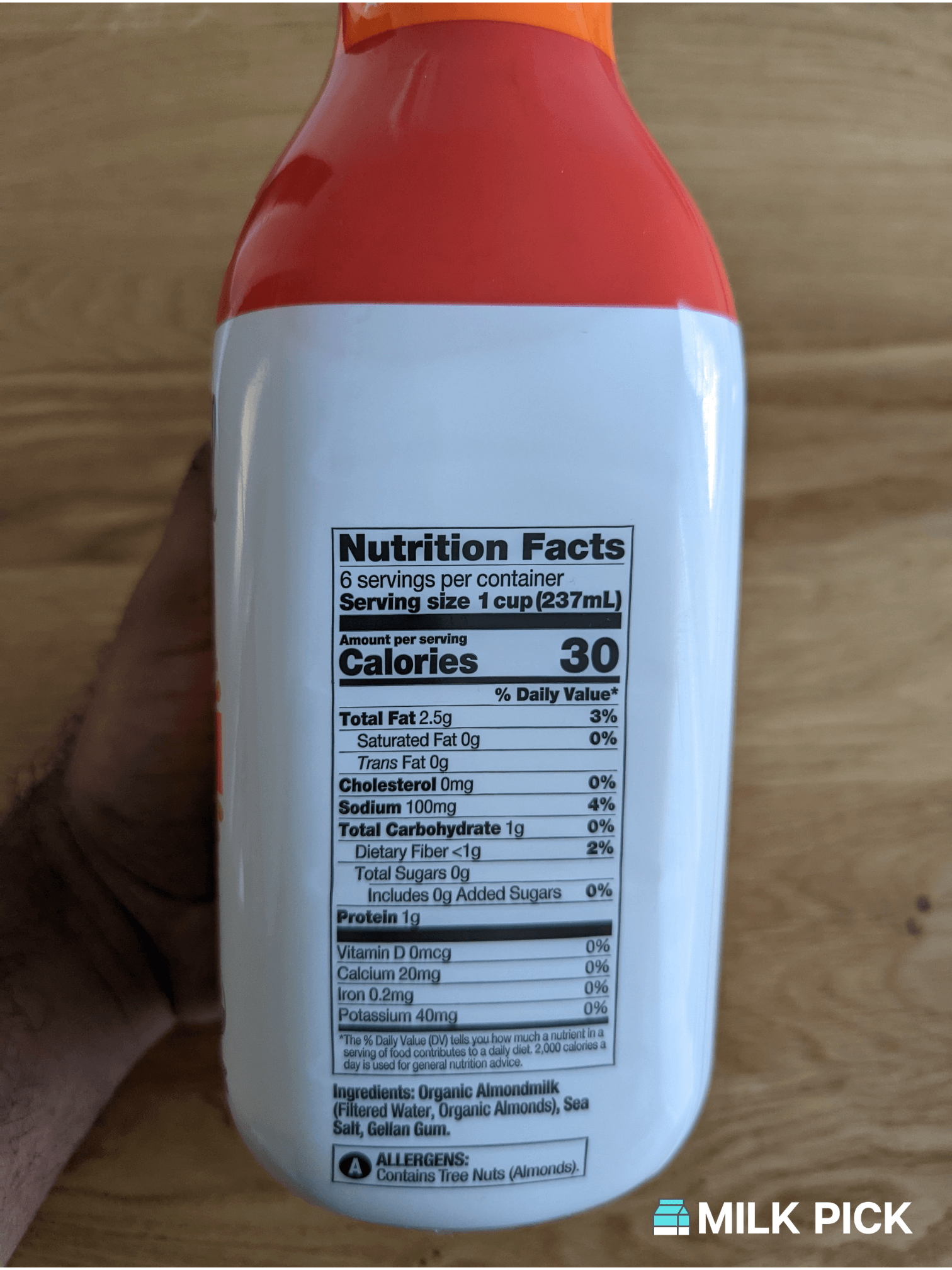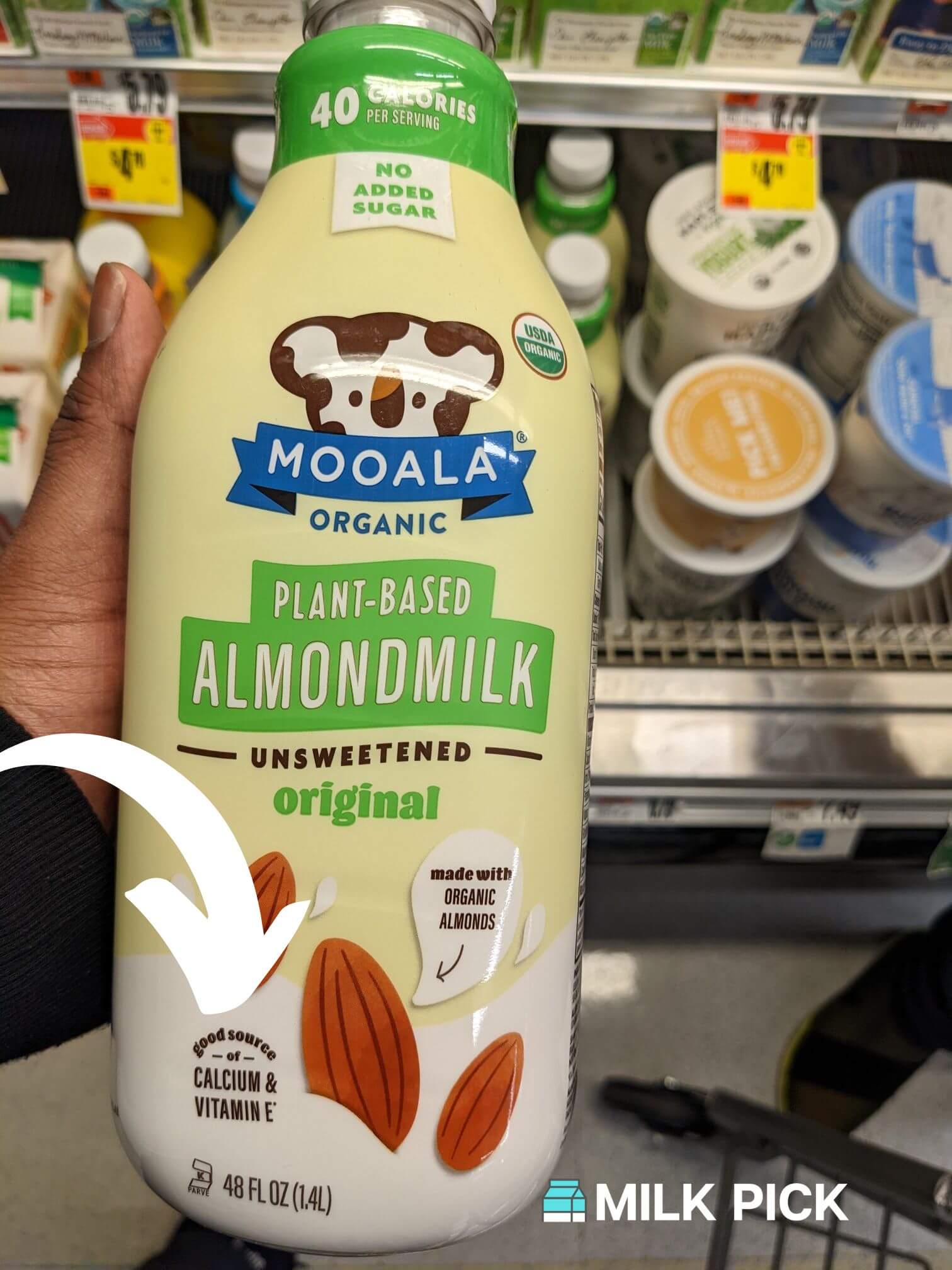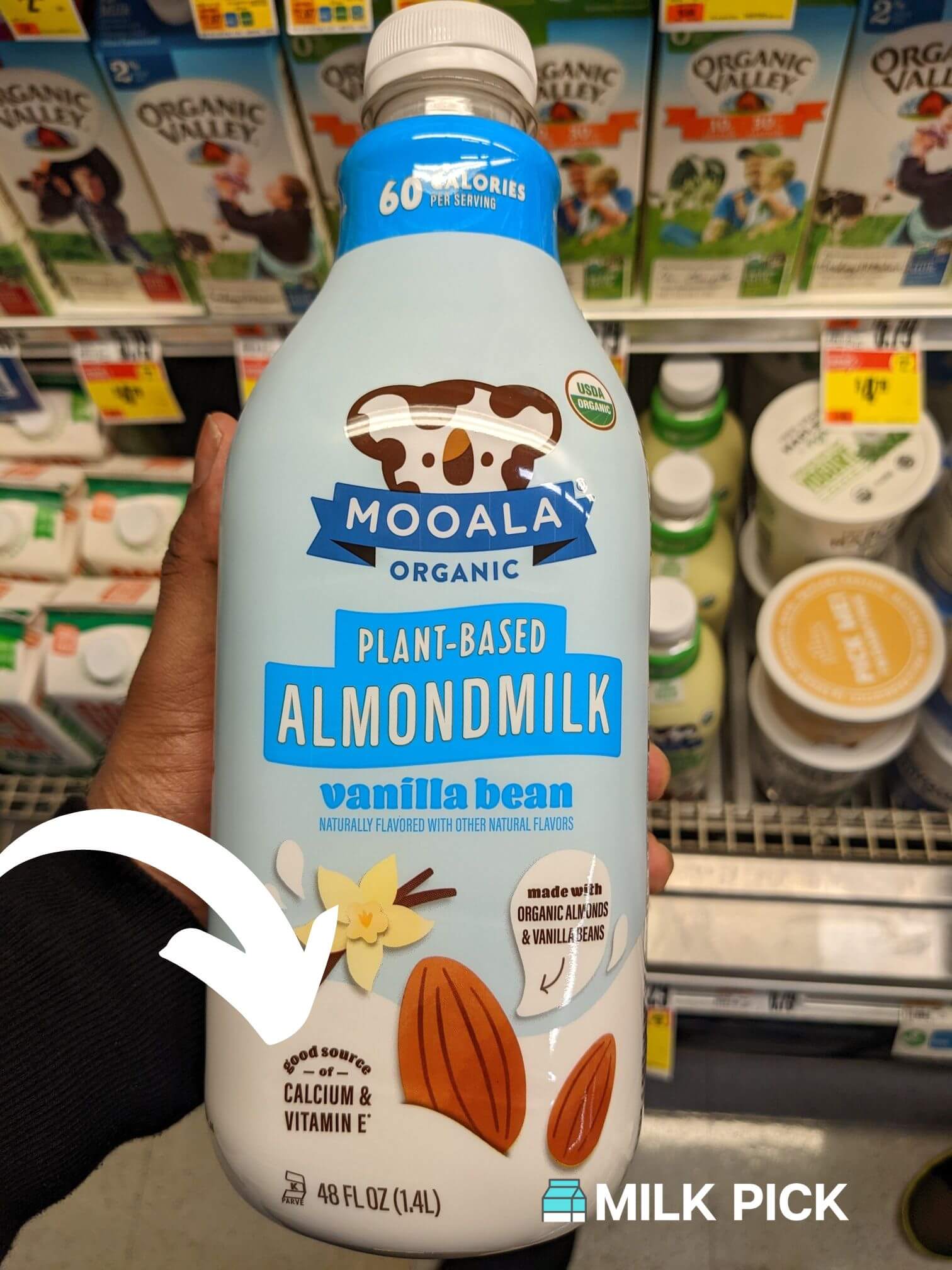For men, taking care of prostate health is essential to an optimal reproductive system. One critical element of a healthy prostate is your lifestyle, including factors like diet, exercise, and weight.
If you are switching to a more plant-based nutrition plan or looking for ways to get in better shape to improve your prostate health, consider drinking almond milk.
Almond milk is a popular plant-based milk alternative made from ground almonds and water. It's a tasty and versatile option that can be used in cereal, smoothies, and as a stand-alone beverage.
But beyond its delicious taste, there is evidence to suggest that almond milk may offer some health benefits, especially regarding prostate health.
This blog post will explore almond milk's potential benefits and limitations for prostate health to give you the information you need to make the right choice for your prostate.
Quick Answer
Is almond milk good for prostate?
Almond milk contains nutrients such as selenium, vitamin E and zinc, which have been shown to aid in prostate health.
What is Prostate Health?
Prostate health refers to the overall well-being of the prostate gland, a small, walnut-sized gland located in the male reproductive system.
The prostate gland produces a fluid that is a component of semen, and it helps to transport sperm during ejaculation.
Prostate health is important for men's reproductive and overall health. Common issues that affect the prostate include:
- Prostate cancer. This is the most well-known prostate issue and is a type of cancer that develops in the prostate gland. It is the second most common type of cancer among men, after skin cancer.
- Benign prostatic hyperplasia (BPH). This is a non-cancerous prostate gland enlargement that can cause urinary symptoms such as frequent urination, weak urine flow, and difficulty starting or stopping urination.
- Prostatitis. This is an inflammation of the prostate gland that can cause pain, discomfort, and urinary symptoms.
Maintaining a healthy diet, getting regular exercise, and having regular medical check-ups can all help to support prostate health.
Here's a video from the Cleveland Clinic with early warning signs of prostate cancer and similar conditions.
What Nutrients and Vitamins Affect Prostate Health?
There are several minerals and vitamins that may impact prostate health. These nutrients include the following:
- Vitamin E. Some studies have suggested that naturally-derived vitamin E may have a protective effect against prostate cancer. It is found in foods such as nuts, seeds, and vegetable oils.
- Selenium. Selenium is a mineral that may also have a protective effect against prostate cancer. It is found in foods like nuts, whole grains, and seafood.
- Lycopene. Lycopene is a plant pigment found in tomatoes and other red fruits and vegetables. Some studies have suggested that it may have a protective effect against prostate cancer, although the evidence is not yet strong.
- Zinc. This mineral is essential for prostate health and is involved in testosterone production. It is found in foods such as meat, seafood, and legumes.
A healthy diet that includes a variety of fresh, whole foods is generally the best approach for supporting prostate health.
Related: Is Almond Milk Good For Men?
Nutritional Profile Of Almond Milk
As part of a healthier diet, you may start drinking almond milk instead of dairy or other carbohydrate-heavy plant-based beverages like oat or rice milk to support your prostate health.
Understanding the nutritional profile of almond milk can help you know what vitamins and nutrients you can get from the drink.
The nutritional profile of almond milk varies depending on the brand and type of almond milk that you choose.
In general, unsweetened almond milk is lower in calories and fat compared to cow's milk and is a good source of vitamin E.
However, it is generally lower in protein and other nutrients than cow's milk.
The nutritional content of one serving of unsweetened almond milk may look like the following:
- Calories - About 30-50 calories per 1-cup serving
- Protein - About 1 gram per 1-cup serving
- Fat - About 2.5 grams per 1-cup serving, with most fat coming from heart-healthy monounsaturated fats
- Carbohydrates - About 1-3 grams per 1-cup serving, depending on the brand
- Vitamin E - About 2.5 milligrams per 1-cup serving (about 13% of the recommended daily intake)
- Calcium - About 300-450 milligrams per 1-cup serving, depending on the brand (around 45% of the RDI of 1000 milligrams for adult men)
- Zinc - About .17 milligrams per 1-cup serving (about 1.5% of the RDI of 11 milligrams for adult men)
- Selenium - About 2.5 micrograms per 1-cup serving, or around 4.5% of the adult male RDA of 55 micrograms

Some almond milk brands fortify their products with added nutrients, such as calcium and vitamin D, to make them more similar in nutrient profile to cow's milk.
Organic brands may contain natural amounts of prostate-healthy nutrients like Vitamin E.
For example, Moola Original Almondmilk has 1.8 milligrams of Vitamin E per serving, 10% of an adult’s RDI.

Always check the ingredient list and nutrition label to see what nutrients are included in a particular product.
Potential Benefits of Almond Milk for Prostate Health
Drinking almond milk can have multiple benefits for prostate health.
It is low in fat and can be part of a plant-based diet, which can help keep your weight under control.
Almond milk is also a good source of Vitamin E, and if fortified with zinc or lycopene, can help you get the RDI amount of these nutrients.
Low Fat and Calorie Content
Almond milk is a prostate-friendly choice because it is low in fat and calorie content.
Prostate cancer is more common in men who are overweight or obese.
For example, a 2020 study found that men with overweight or obese BMI measurements had an increased risk of prostate cancer.
Choosing low-calorie foods like almond milk can be beneficial in helping to maintain a healthy weight to reduce your risk of prostate issues.
Good Source of Vitamin E
Almond milk is a good source of Vitamin E, which may protect against prostate cancer.
Some studies have found that men with higher levels of bioavailable Vitamin E in their diet (naturally-derived Vitamin E from foods like almond milk rather than synthetic supplements) may be at a lower risk of developing prostate cancer.
More recent studies have found no association between prostate cancer risk and Vitamin E, so additional recent is needed.
However, Vitamin E offers many alternative benefits to your overall health, so getting Vitamin E through almond milk can still help you improve your well-being.

May Be Fortified with Lycopene
Lycopene is a plant pigment that is found in tomatoes and other red fruits and vegetables. It is a powerful antioxidant that may have a protective effect against prostate cancer.
Almond milk does not naturally contain lycopene, as it is not made from tomatoes or other red fruits and vegetables.
However, some almond milk products may be fortified with added nutrients, including lycopene.
It is always a good idea to check the ingredient list and nutrition label to see what nutrients are included in a particular product.
Potential Source of Zinc
Zinc is an essential mineral important for many bodily functions, including immune function, wound healing, and testosterone production.
It is found in a variety of foods, including meat, seafood, and legumes.
Almond milk is not a particularly rich source of zinc, as almonds are relatively low in this mineral.
A 1-cup serving of unsweetened almond milk may contain about 1 milligram of zinc, a small fraction of the recommended daily intake of 8 milligrams for adult men.
However, some almond milk products may be fortified with added nutrients, including zinc, so make sure to review the ingredient list and nutrition label to see what nutrients are included in a particular product.
When considering almond milk for prostate health, remember that it’s generally best to get nutrients from a varied diet that includes a wide range of foods rather than relying on a single food or drink to provide all the nutrients you need.
Related: Does Almond Milk Lower Testosterone?
How Can You Best Take Care of Your Prostate Health?
Men can take several steps to support their prostate health in addition to drinking almond milk. A well-rounded, holistic approach can influence your overall well-being and reproductive health, including diet, exercise, and lifestyle.
For optimal prostate and reproductive health, consider doing the following:
- Maintain a healthy weight. Being overweight or obese is a risk factor for prostate cancer, so maintaining a healthy weight is important for prostate health.
- Get regular exercise. Regular physical activity can help to maintain a healthy weight and may also have other benefits for prostate health.
- Eat a healthy diet. A diet rich in fruits, vegetables, and other plant-based foods rich in nutrients like Vitamin E, lycopene, and zinc, may be beneficial for prostate health. Almond milk is an excellent plant-based alternative to cow’s milk that can support a plant-based or lower-calorie diet.
- Limit alcohol intake. Heavy alcohol consumption has been linked to an increased risk of prostate cancer, so limit your alcohol intake.
- Get regular medical check-ups. It is important to have regular medical check-ups, including prostate exams, to monitor prostate health and catch any potential problems early.
Drink Almond Milk As Part of a Healthy Diet For Prostate Health
Almond milk may have some potential benefits for prostate health, such as vitamin E and selenium; however, it may only contain a small amount of these nutrients per serving.
The best way to think of almond milk for prostate health is that it is most beneficial when consumed as part of a balanced diet.
It is generally best to get nutrients from a varied diet that includes a wide range of fruits, vegetables, and other healthy foods, rather than relying on a single food or supplement.
Overall, the best approach for maintaining prostate health is to adopt a healthy lifestyle that includes a balanced diet, regular exercise, and regular medical check-ups.
Taking care of your overall health and undergoing regular medical check-ups are essential for maintaining prostate health.
